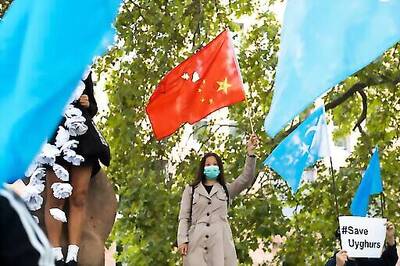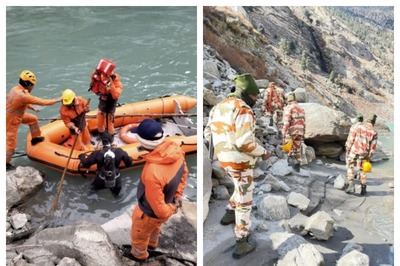
views
PHNOM PENH, Cambodia: Cambodia and China on Wednesday rejected U.S. allegations that a Chinese state-owned company was guilty of human rights abuses and corruption in its acquisition of land in Cambodia.
The U.S. Treasury Departments Office of Foreign Assets Control announced Tuesday that it is imposing sanctions under U.S. law on Chinas Union Development Group Co. Ltd. for its activities in Cambodia.
It charged that the company forced Cambodians from their land and devastated the environment, hurting the livelihoods of local communities, all under the guise of converting Cambodia into a regional logistics hub and tourist destination.
A spokesman for Cambodian Prime Minister Hun Sens ruling Cambodian People’s Party said Wednesday that while the U.S. government had the right to impose sanctions, its allegations were baseless.
Sok Eysan said the government allowed the project to proceed only after its master plan was reviewed and approved by the state Cambodian Development Council, and that the Chinese company was working according to that plan.
The U.S. Treasury Department said in a statement announcing the sanctions that the Chinese company in 2008 acquired a 99-year lease from Cambodias government for the development of the Dara Sakor project covering almost 20% of Cambodias coastline by forming a local company to become the leaseholder. The company later reverted to Chinese ownership, the Treasury Department said.
It charged that Cambodias military used violence to help clear the land, and that then-armed forces chief of staff Kun Kim benefited financially from the arrangement. Kun Kim and his close family members have already been targeted with U.S. sanctions for alleged corruption.
U.S. Secretary of State Mike Pompeo spelled out broader concerns in a separate statement Tuesday.
There are credible reports that the coastal development project at Dara Sakor could be used to host PRC (Chinas) military assets, and if so would go against Cambodias Constitution and could threaten Indo-Pacific stability, possibly impacting Cambodias sovereignty and the security of our allies, he said.
U.S. officials have previously suggested a Cambodian naval base on the coast was being prepared for use by China, and an airport being built on the Chinese companys land appeared to be designed to accommodate military aircraft as well as civilian planes.
Hun Sen has denied repeatedly that he would allow any foreign power to use Cambodian territory for a base.
Chinese foreign ministry spokesman Wang Wenbin said Wednesday that Washington has repeatedly used unwarranted allegations that Chinas relevant project in other countries could be transformed into military bases to discredit and attack our normal cooperation with relevant countries.”
However, the United States itself has hundreds of military bases in more than 150 countries around the world. This hypocritical and double-standard practice by the United States is despicable, Wang said.
The U.S. sanctions, imposed under the Magnitsky Act, block the Chinese companys access to any assets it has in the United States, and U.S. citizens and companies are barred from conducting any financial or other transactions with it.
Prominent Cambodian environmentalist Ouch Leng said the U.S. action came too late, after a land rights protest leader died, forest and other natural resources were exhausted and peoples livelihoods suffered, leaving them fearful and without decent jobs.
He charged that other Chinese companies are carrying out activities harmful to the environment and hurting peoples livelihoods.
___
Associated Press writer Grant Peck in Bangkok contributed to this story
Disclaimer: This post has been auto-published from an agency feed without any modifications to the text and has not been reviewed by an editor




















Comments
0 comment